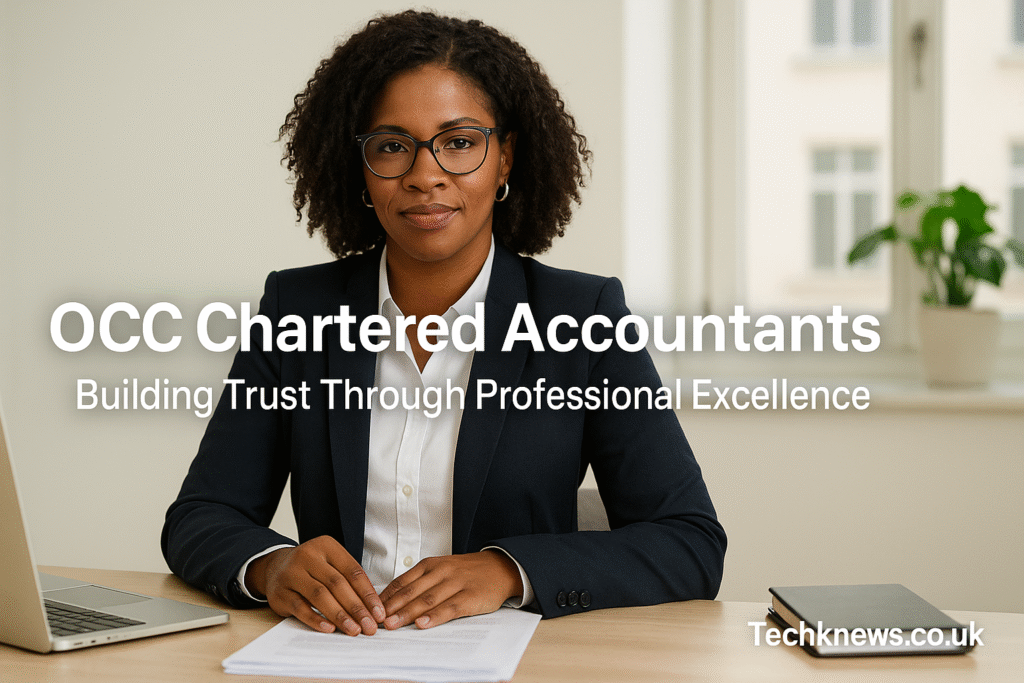The world of finance is built on trust, and at the heart of that trust stands the chartered accountant. In Portugal, the Ordem dos Contabilistas Certificados (OCC) is the institution responsible for maintaining this trust. It governs how accountants are trained, certified, and monitored, ensuring that every professional who carries the OCC title upholds the highest standards of ethics and accuracy.
As someone who has worked alongside financial professionals from multiple countries, I’ve seen firsthand how the OCC model stands out. It blends traditional accounting discipline with modern governance and digital oversight. This balance helps Portugal’s businesses operate smoothly, with reliable records and transparent reporting.
In this guide, we’ll explore what OCC chartered accountants do, why they matter, how to become one, and what challenges and opportunities await in this profession. Whether you’re a student, a business owner, or a finance enthusiast, this overview will give you a real understanding of the OCC system.
What Is OCC and Why Does It Exist?
The OCC (Ordem dos Contabilistas Certificados) is the national body that regulates chartered accountants in Portugal. It ensures that accounting professionals not only meet technical qualifications but also operate with integrity and professionalism. Every certified accountant in Portugal must be registered under the OCC to legally practice.
The main goal of the OCC is to protect public interest by setting consistent standards for financial reporting and ethical behavior. This means that any report signed by an OCC-certified accountant carries legal and professional credibility. The organization enforces rules related to accounting practices, financial transparency, and anti-fraud compliance.
In practice, the OCC acts as both a mentor and a monitor. It helps accountants through education and training programs, while also conducting audits and disciplinary actions to maintain the quality of services. This dual approach has helped build one of the most trusted accounting systems in Europe.
Roles and Responsibilities of OCC Chartered Accountants
Chartered accountants play a crucial role in any country’s economy. Under OCC, their responsibilities go beyond basic bookkeeping or tax filing. They are trusted advisors, financial planners, and compliance specialists who ensure businesses follow national and international laws.
Some of their main tasks include preparing and auditing financial statements, managing taxation, and offering consulting on mergers, acquisitions, and corporate restructuring. They also guide small and medium enterprises in improving financial efficiency. Many OCC professionals now assist clients with sustainability reporting and digital transformation in finance.
In short, OCC chartered accountants are not just number crunchers. They are strategic partners who help businesses make smarter decisions, maintain credibility with investors, and stay compliant with ever-changing regulations.
How to Become an OCC Chartered Accountant
Becoming an OCC-certified accountant takes dedication, education, and commitment to ethics. The path is structured to ensure that every certified professional has both academic knowledge and real-world experience.
- Education: Candidates must hold a university degree in accounting, finance, or business. This academic foundation covers essential topics like tax law, auditing, and management accounting.
- Examination: The OCC conducts a series of professional exams that test theoretical and applied knowledge. These exams are designed to evaluate problem-solving skills rather than rote memorization.
- Practical Experience: After exams, aspiring accountants must complete a supervised training period (often one to two years) under the guidance of an experienced OCC professional.
Finally, candidates must apply for registration with the OCC. Once accepted, they earn the title of “Contabilista Certificado” and can legally practice in Portugal. This process ensures that every member is fully prepared to serve both businesses and the public interest.
The Importance of Continuous Learning and Ethics
One of the defining features of the OCC system is its focus on Continuing Professional Development (CPD). Even after certification, members are required to keep learning through workshops, seminars, and online courses. The idea is simple: the world changes, and so must accountants.
Every year, new tax laws, financial reporting standards, and digital tools reshape the field. OCC ensures its members remain updated so they can offer accurate advice. For instance, when IFRS standards or EU tax directives change, the OCC immediately updates its training modules.
Ethics are equally critical. OCC has a strict code of conduct that members must follow. Any violation — such as falsifying data, breaching confidentiality, or engaging in unethical client behavior — can lead to penalties or suspension. This high ethical bar is what gives the OCC and its members their strong reputation.
Benefits of Being an OCC Chartered Accountant
OCC certification is more than just a professional title; it opens doors to career growth, trust, and long-term stability. Certified accountants enjoy recognition both within Portugal and abroad, thanks to OCC’s membership in international organizations like IFAC (International Federation of Accountants).
For professionals, the benefits include higher employability, access to exclusive training, and credibility with clients and institutions. Businesses, on the other hand, gain confidence when hiring OCC-certified accountants, knowing that their financials are in safe hands.
Beyond technical competence, OCC members become part of a respected community. They can network with peers, share insights, and collaborate on projects that shape the future of accounting and finance in Europe.
Common Challenges in the Profession
Like any career, accounting under OCC comes with challenges. The workload can be demanding, especially during tax seasons or financial audits. Keeping up with new laws and standards can also be mentally taxing.
Another challenge is the digital shift. As automation and AI become part of accounting systems, OCC professionals must adapt to technologies like data analytics, blockchain, and cloud accounting. Continuous learning is not optional—it’s survival.
Lastly, young accountants often find the path to certification expensive and time-consuming. Exams, membership fees, and training costs can add up. However, the long-term rewards — job security, reputation, and flexibility — usually outweigh these obstacles.
OCC’s Role in Shaping Portugal’s Financial Integrity
The OCC’s work has had a clear impact on Portugal’s economy. By maintaining high professional standards, it ensures that financial statements and tax reports reflect reality. This transparency attracts foreign investors and strengthens trust in the country’s markets.
Government agencies often collaborate with OCC to ensure financial reforms and tax regulations are correctly implemented. The OCC also advises on EU accounting standards, helping align Portugal’s policies with international expectations.
In essence, OCC doesn’t just regulate accountants — it helps shape financial culture. By emphasizing honesty, clarity, and accountability, it makes the country’s economy more resilient and globally respected.
Real-World Impact of OCC Chartered Accountants
Let’s take an example from the real world. A Portuguese startup once struggled with inconsistent cash flow and compliance issues. After hiring an OCC-certified accountant, their books became transparent, and they gained investor trust. Within a year, they secured funding from an EU innovation grant.
In another case, an OCC professional helped a small bakery navigate complex tax reforms, saving them from penalties and helping them expand legally. These examples show how the OCC’s standards directly influence business success.
From large corporations to small shops, OCC members are behind the scenes ensuring the numbers tell the truth. Their work might not make headlines, but it’s what keeps economies running smoothly.
Future of OCC Chartered Accountants
As the world becomes more digital, OCC’s next challenge is integrating technology without losing its human foundation. Artificial intelligence and automation are simplifying some tasks, but professional judgment and ethics remain irreplaceable.
In the future, OCC may expand its training programs to include data analytics, cybersecurity, and sustainability reporting — areas where accountants will play a growing role. These skills will allow professionals to guide businesses beyond finance, into environmental and strategic decision-making.
The future OCC accountant will be both a financial guardian and a business strategist. Those who keep evolving with the organization will not just survive but thrive.
Conclusion
The OCC Chartered Accountant is more than a financial professional — they are a cornerstone of trust and transparency in Portugal’s economy. Their work protects businesses, strengthens markets, and upholds ethical standards that benefit everyone.
For aspiring accountants, joining the OCC means a journey of discipline, learning, and service. For businesses, hiring an OCC-certified professional is an investment in reliability and long-term success.
Whether you view it as a career path or as part of a nation’s financial backbone, one thing is clear: OCC Chartered Accountants represent excellence, credibility, and the future of ethical accounting.


